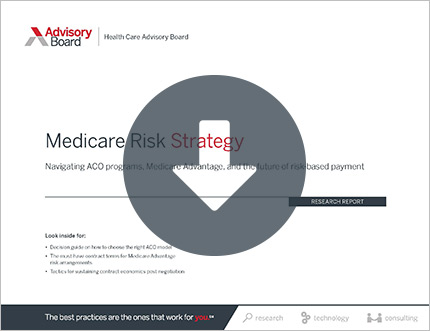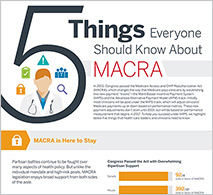Auto logout in seconds.
Continue LogoutAbout one-third of health care payments made last year were associated with value-based models, suggesting the health care industry is steadily moving away from the traditional fee-for-service model, according to a progress report by the Health Care Payment Learning and Action Network (HCP-LAN).
Upcoming webconference: How to scale advanced primary care in a value-based care era
Report details
For the report, HCP-LAN examined fee-for-service Medicare data as well as data from 61 health plans and three fee-for-service Medicaid states. HCP-LAN looked at the volume of in-network and out-of-network health care spending tied to alternative payment models (APM).
The spending was divided into four categories established by HCP-LAN:
- Category 1, which includes traditional fee-for-service and other payments that are not linked to quality;
- Category 2, which includes care coordination fees and pay-for-performance; and
- Categories 3 and 4, which include shared risk, shared savings, bundled payments and population-based payments.
Health care dollars in value-based care 'steadily' increasing
The report found that 34% of health care dollars in 2017, were tied to Categories 3 and 4.
This represents an increase in value-based care spending since 2016, according the report, when 23% of health care dollars were linked to APMs that consider value and quality.
The remaining health care dollars in 2017 were tied to payments in categories 1 and 2, with 25% of payments falling into category 2 and 41% of payments falling into category 1—meaning there was no tie to quality.
Can the health care industry continue the steady shift toward value-based payments?
The report findings show "that there is sustained, positive momentum in the effort to shift health care payments from traditional fee-for-service into value-based payments," Mark McClellan, co-chair of the HCP-LAN guiding committee and director of the Robert J. Margolis Center for Health Policy, said.
Separately, Adam Boehler, deputy administrator at CMS and director of CMMI, said the shift toward value-based payments indicates that the health care industry, which usually moves like "molasses," has "transformed a lot."
However, Boehler and McClellan agreed that for the shift to continue providers would have to be willing to enter more complex payment models
McClellan said, "While we celebrate the increase in overall APM adoption, we also know further progress on payment reform will be important to ensure health care dollars flow through models that have more risk" (Gooch, Becker's Hospital CFO Report, 10/22; Minemyer, FierceHealthcare, 10/22; 2018 APM Measurement Effort, 10/22).
Upcoming webconference: How to scale advanced primary care in a value-based era
Learn how providers are transforming the primary care enterprise to match value-based care goals using sustainable funding and data-driven decision-making.
Don't miss out on the latest Advisory Board insights
Create your free account to access 1 resource, including the latest research and webinars.
Want access without creating an account?
You have 1 free members-only resource remaining this month.
1 free members-only resources remaining
1 free members-only resources remaining
You've reached your limit of free insights
Become a member to access all of Advisory Board's resources, events, and experts
Never miss out on the latest innovative health care content tailored to you.
Benefits include:
You've reached your limit of free insights
Become a member to access all of Advisory Board's resources, events, and experts
Never miss out on the latest innovative health care content tailored to you.
Benefits include:
This content is available through your Curated Research partnership with Advisory Board. Click on ‘view this resource’ to read the full piece
Email ask@advisory.com to learn more
Click on ‘Become a Member’ to learn about the benefits of a Full-Access partnership with Advisory Board
Never miss out on the latest innovative health care content tailored to you.
Benefits Include:
This is for members only. Learn more.
Click on ‘Become a Member’ to learn about the benefits of a Full-Access partnership with Advisory Board
Never miss out on the latest innovative health care content tailored to you.


